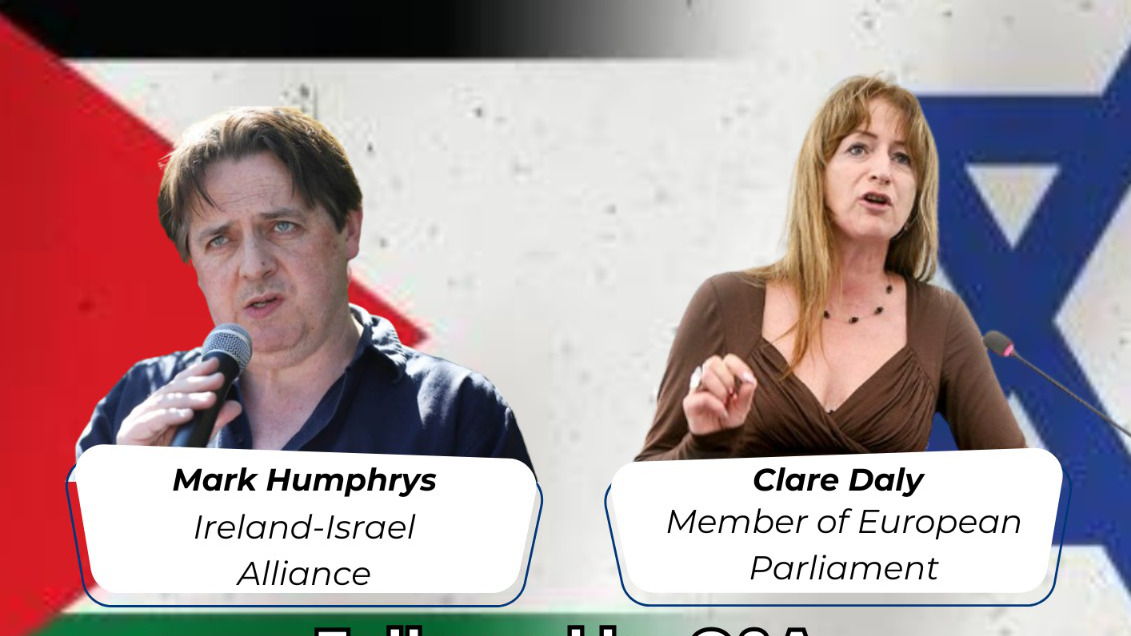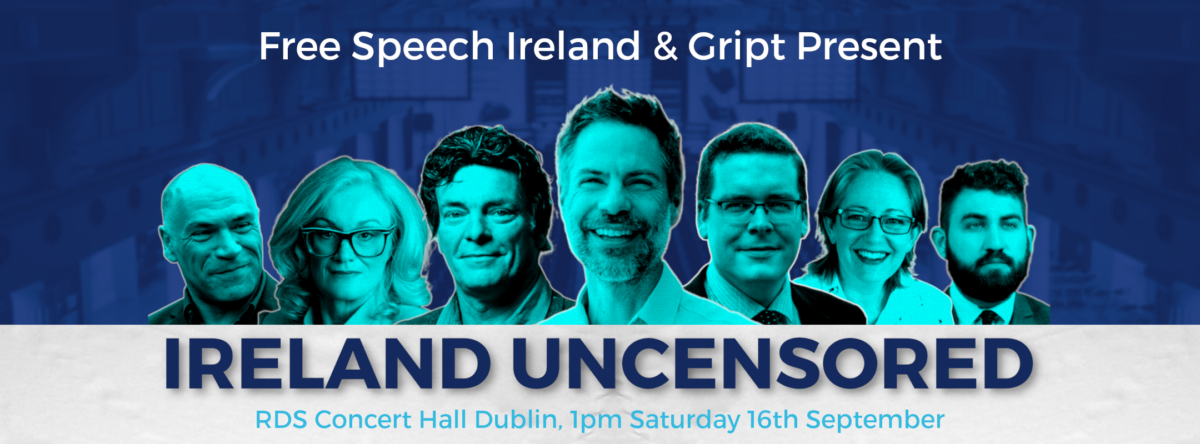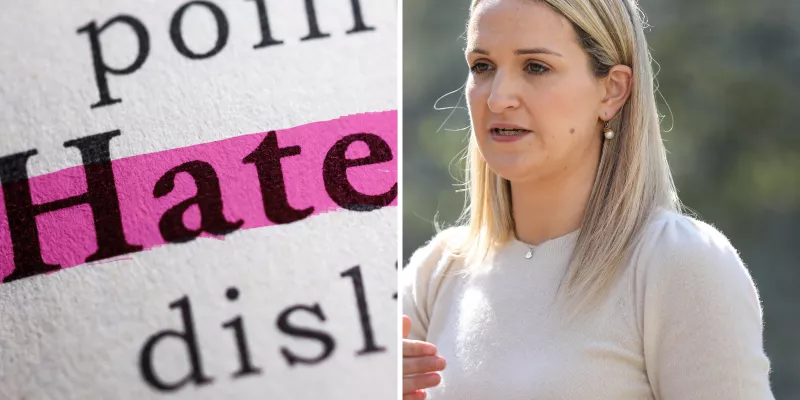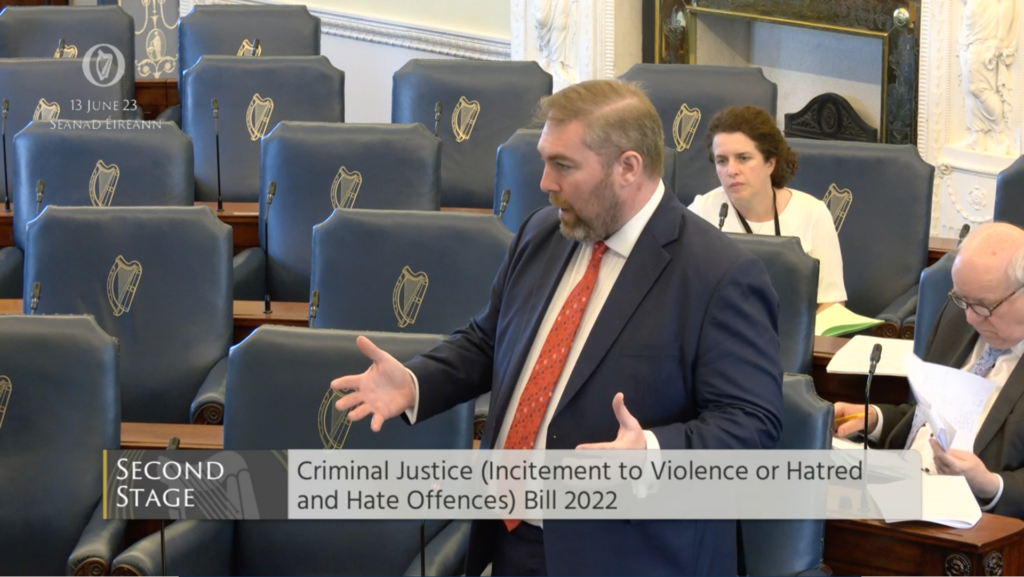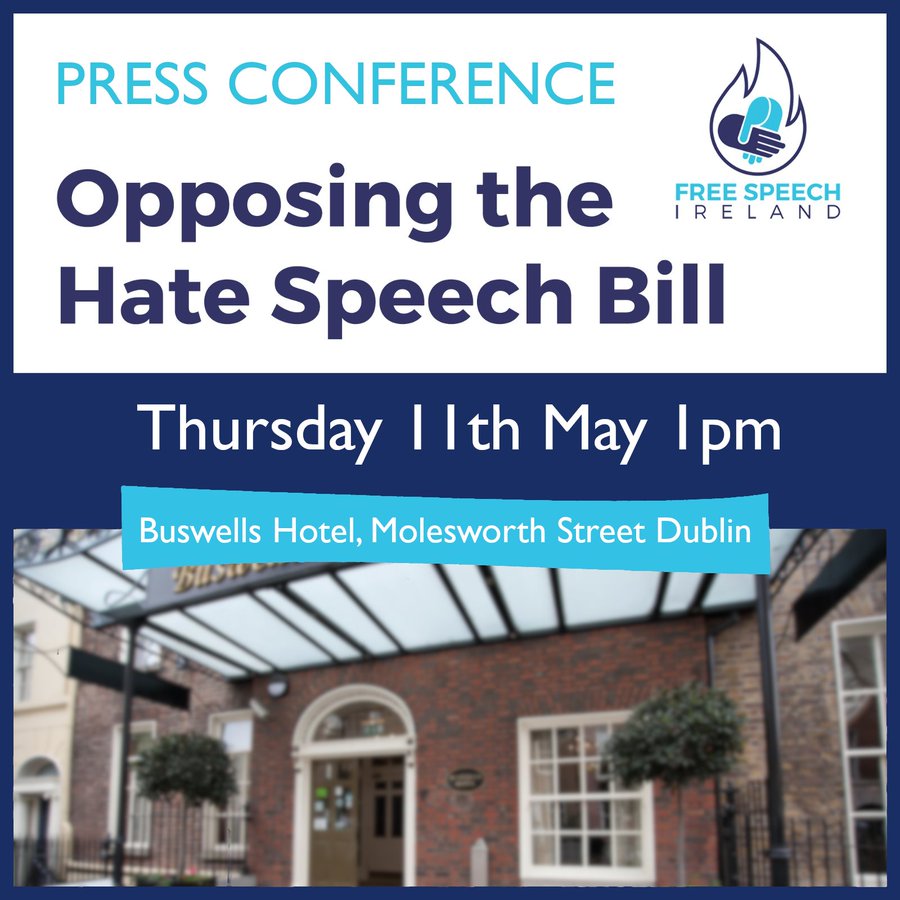The Dublin City University Debate society (@DCUDebate) was set to host a debate on March 27th, ‘Where Does the Blame Lie for the Arab-Israeli Conflict?’. Two days before the debate, featuring Clare Daly MEP and Prof. Mark Humphreys, it was called off by the society.
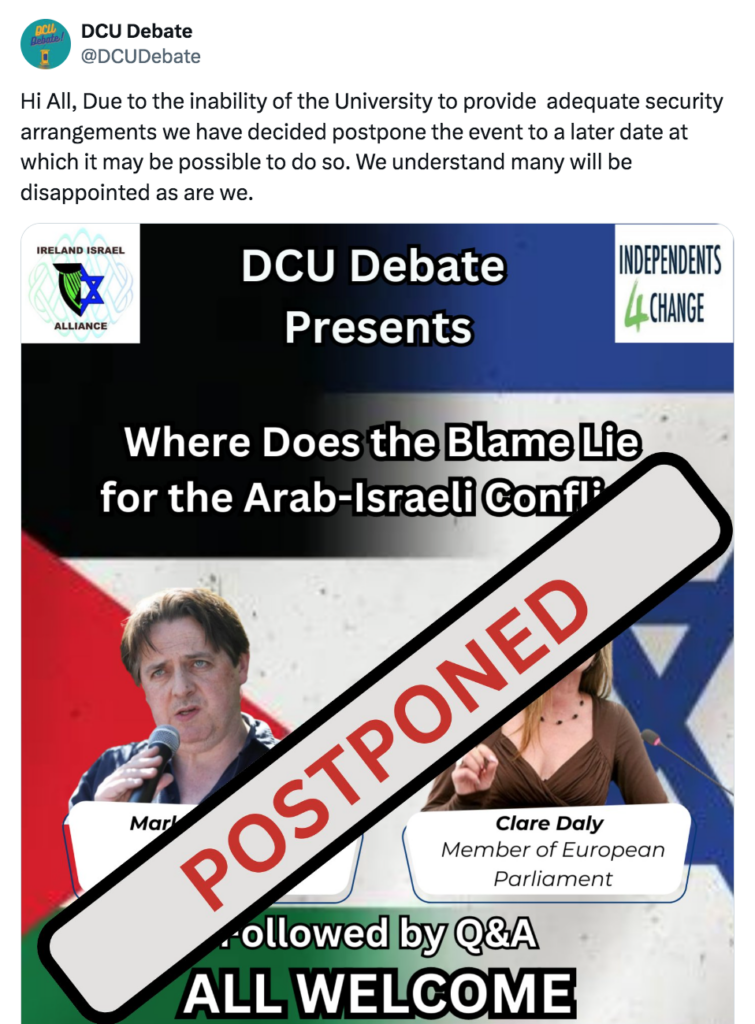
Although the society cited logistical shortcomings, emails leaked to FSI show university staff calling for the cancellation of the debate:
Mail sent to DCU Debate
Dear Society,
I am writing on behalf of a group of staff members across several faculties and departments in DCU. We learnt that your Society organised a debate on the current war on Gaza, to be held on March 27th, featuring four speakers. We would like to express our concerns regarding the presence of our colleague Mark Humphreys as one of the speakers.
In the past, our colleague has been criticised for jeopardising the safety and welfare of DCU students. You may not be aware that in 2021, DCU denounced a post written by this colleague on the anti-racist movement BLM, officially distancing itself from the words and views of this person (https://universitytimes.ie/2021/11/dcu-denounces-lecturer-who-called-black-lives-matter-nonsense/ ). DCU former student Ibrahim Halawa talked about how much this staff member impacted on his wellness and mental health (https://the-beacon.ie/2021/12/04/students-hit-back-at-racism-on-campus-as-dcus-mark-humphrys-feels-the-heat/ ). Our colleague has been at the centre of campus life for his opinions and views, and students have repeatedly denounced such views as “racism” and “Islamophobia” (https://trinitynews.ie/2021/11/op-ed-students-are-right-to-object-to-islamophobia-and-racism-portrayed-by-their-lecturers/ ). We respectfully wonder why a student society would want to platform someone who has been identified as problematic and damaging by other students.
While our primary concerns focus on the safety of the students, we also wonder if the framing of the debate actually reflects the reality of the data that we receive on a daily basis from Gaza and of the international law, or if it only serves the purpose of inflaming a debate which, we are afraid, will hardly be respectful.
We strongly believe in the transformative power of debating and thinking together, when the integrity of the views exposed and the safety of all participants are guaranteed. We do not think that this is one of those occasions, and we urge you to reconsider the opportunity of holding this debate in these circumstances.
Best regards,
Aisling Twohill, School of STEM Education, Innovation and Global Studies
Audrey Bryan, School of Human Development
Beatrice Scutaru, DCU, School of History and Geography
Caitriona Ni Cassaithe, School of STEM Education, Innovation and Global Studies
Catherine Baker, DCU Anti-Bullying Centre
Eamon Costello, School of STEM Education, Innovation & Global Studies
Eileen Culloty, School of Communications
Ellen Howley, School of English
Erika Biagini, School of Law and Government
Eugene McNulty, School of English
Faraj Elammari, Information Systems Services
Hussam Achour, School of Mechanical and Manufacturing Engineering
Jenna Harris, School of Theology, Philosophy & Music
Joe Usher, DCU, School of STEM Education, Innovation and Global Studies
Justin Rami, School of Policy & Practice
Maria Barry, School of STEM Education, Innovation and Global Studies
Marie Flynn, School of Human Development
Mathias Urban, DCU Institute of Education, Early Childhood Research Centre
Niamh Gaynor, School of Law and Government
Paola Rivetti, School of Law and Government
Peter Tiernan, School of STEM Education, Innovation and Global Studies
Ronaldo Munck, Director of the Centre for Engaged Research
Rowan Oberman, School of STEM Education, Innovation and Global Studies
Shadi Karazi, DCU Business School
Reply from DCU Debate
Dear Paola,
We are disappointed to have received this email from you and we as a society have lost respect for all staff who have signed off on this.
First of all this debate is about the conflict as a whole which as you have been keen in the past to remind people has a longer history than October 7th and the current Gaza Campaign.
You have expressed that you believe in debate and that this opposition to the event is purely due to opposition to Mark Humphrys. You and other colleagues were invited to participate or provide input and none of you expressed any interest in doing so.
The hypocrisy is shocking from someone who was happy to share a platform with Richard Boyd Barrett TD who has made many heinous statements regarding the conflict in Ukraine and a USI representative who at your BDS DCU event engaged in anti semitic language by saying and I quote “The presence of a Jewish student or academic legitimises the apartheid state.”
As a society we are committed to the free expression of all ideas no matter our personal views on them. To claim you believe in the transformative power of debate while trying to censor one is a questionable statement.
We had expressions of support from actual Palestinians on our campus for hosting this debate and believe it is not the place of those with little connection to the conflict to dictate how it may be discussed.
Universities are to be institutes of learning and the free expression of ideas as such we feel you have lost any right to our respect or to be called academics.
The DCU Debate Society Committee
This is not the first time Prof. Humphrys has been the focus of ire at DCU: after expressing opinions about George Floyd and Black Lives Matter on his blog in 2021, students and academics campaigned for him to be sacked.
Following the cancellation of the debate, an unofficial debate occurred on the 27th in a pub near DCU. Speakers on either side of the motion, including Prof. Humphrys, were in attendance, with the exception of Clare Daly. Further leaks revealed that the society’s activities for the rest of the year have been frozen. It is unclear yet whether those involved in the debate will be, or have been, penalised by the University.

